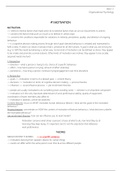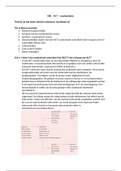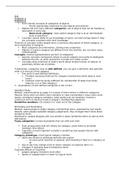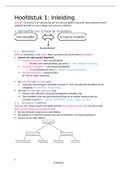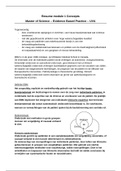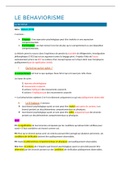Samenvatting
Summary Course 1.7 Working Man
- Vak
- Instelling
I offer you a complete summary of course 1.7 - working man (psychology). I included a lot of colours and graphics to make studying nicer and easier - It's like reading a good textbook, but way shorter. You can be sure that I included all important information for this course as me & a lot of friend...
[Meer zien]
